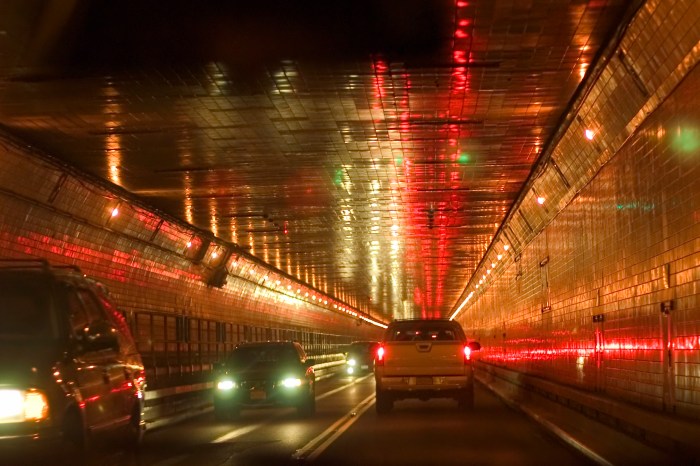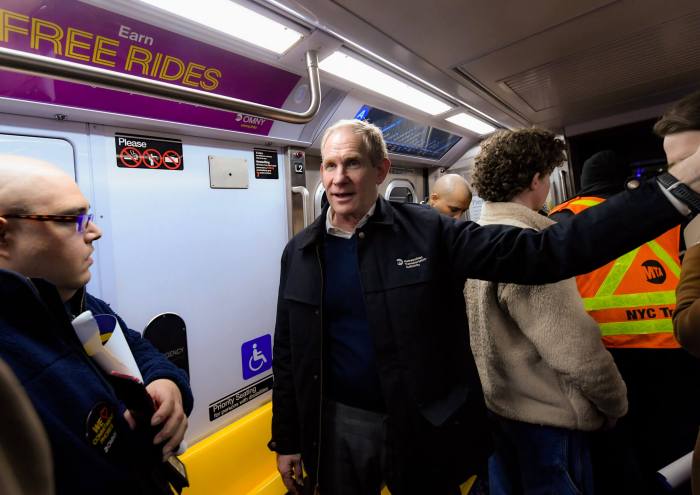
Mayor Bill de Blasio Monday said he was surprised by the MTA’s push for even more money from the city’s budget.
“Suddenly, another request appeared out of nowhere,” said de Blasio at an unrelated news conference about the last days of the city’s executive budget process.
The MTA is seeking about $3.2 billion from the city over five years for the Second Avenue Subway and keeping the transit system in good condition, an increase from requests the MTA made earlier earlier this year for $2.5 billion and $657 million for its capital plan. However, the MTA expects a little over $500 million of that figure to be picked up by the feds to expand the Second Avenue Subway to East Harlem.
“This too has come as a surprise,” de Blasio said. “And my simple response is, we welcome more information on the financial commitment that the governor is making — in terms of where the state will find the resources and how they’re going to commit them.”
MTA spokesman Adam Lisberg said the request did not come out of nowhere.
“There’s no reason for the mayor to have been surprised,” he said. “Chairman [Tom] Prendergast sent a letter with a funding proposal to [Deputy Mayor Anthony] Shorris three months and got no response, so he’s trying again.”
Brooklyn Assemb. James Brennan went further Mondayand highlighted a bill he introduced that called for the city to chip in even more — $4.5 billion, using bonds. The bill had also called for about 1% of state income tax revenue to go to the MTA.
A mayoral spokeswoman said the MTA’s leadership does not represent the city. De Blasio nominated three new members to the MTA board this spring, but they were not confirmed by the state Senate. He currently only has one nominee on the board, DOT Commissioner Polly Trottenberg. Two board members were nominated by former Mayor Michael Bloomberg.
“City residents and businesses already fund the vast majority of the MTA’s budget, but the city only has four seats total on the board,” said spokeswoman Amy Spitalnick, who also noted that the city doesn’t have control over who runs the subways and buses. “The voices of New Yorkers must be heard and these nominees should be confirmed as soon as possible.”
She added that City Hall has not ignored the MTA but increased funds to meet their original $657 million request, and then asked the MTA to sit down to talk about further funding where all options are on the table.
Lisberg said the city needs to pay its fair share, and that the state has agreed to pony up more than $8 billion. “That sounds like the mayor is trying to take credit for what regular New Yorkers pay in fares and tolls, instead of paying the city’s share of investing in the subways and buses that move New York.”
The Riders Alliance, a public transit advocacy group, was also critical that the mayor does not have more power when the city has been asked to pay much more.
“It just seems a little duplicitous to say the city should be paying massive amounts to fund the MTA when the city has zero say how the MTA actually runs,” said deputy director Nick Sifuentes.
“The city is being asked to pay more than it’s ever been asked to do so historically.”
(With Emily Ngo)

















